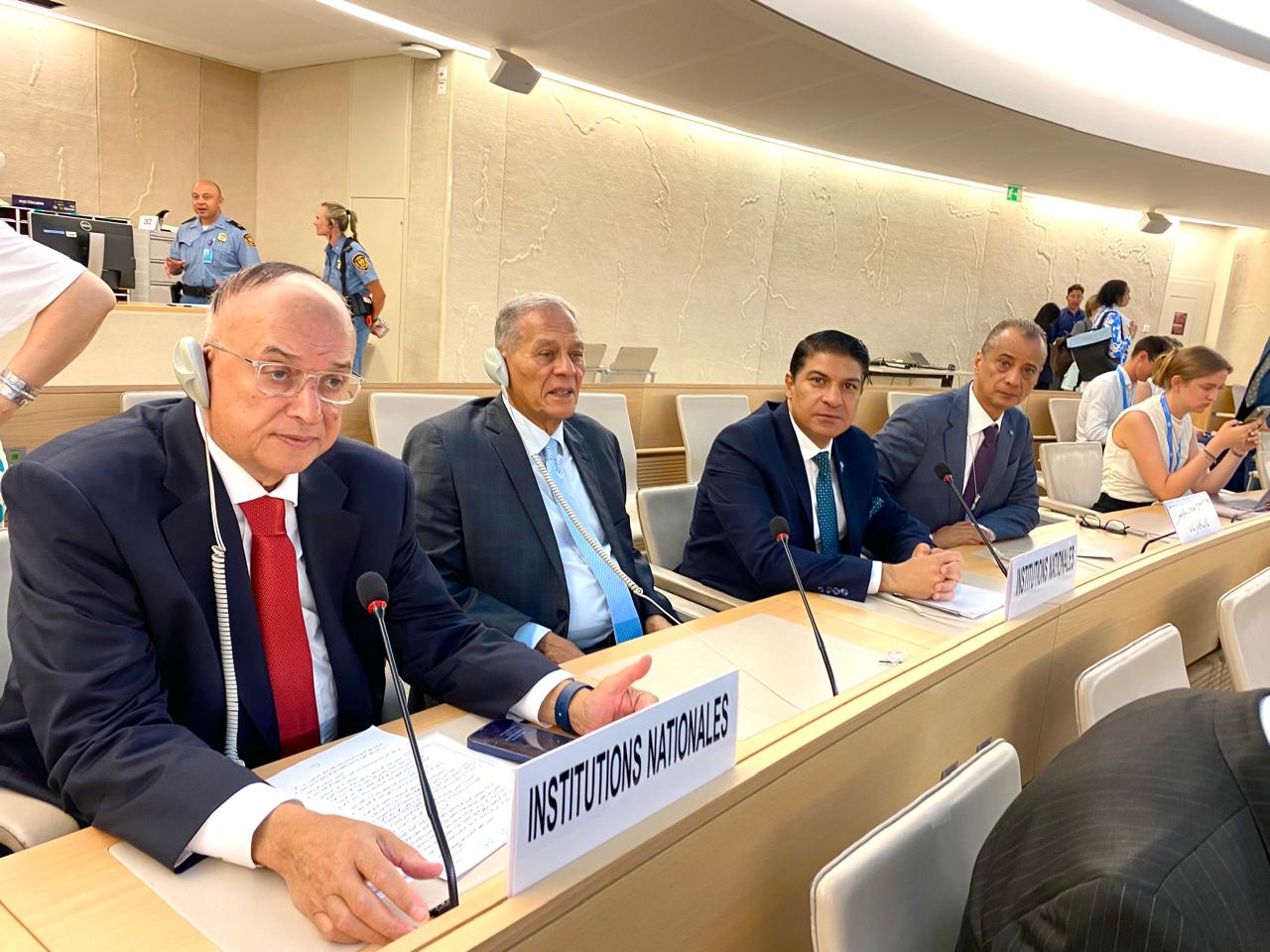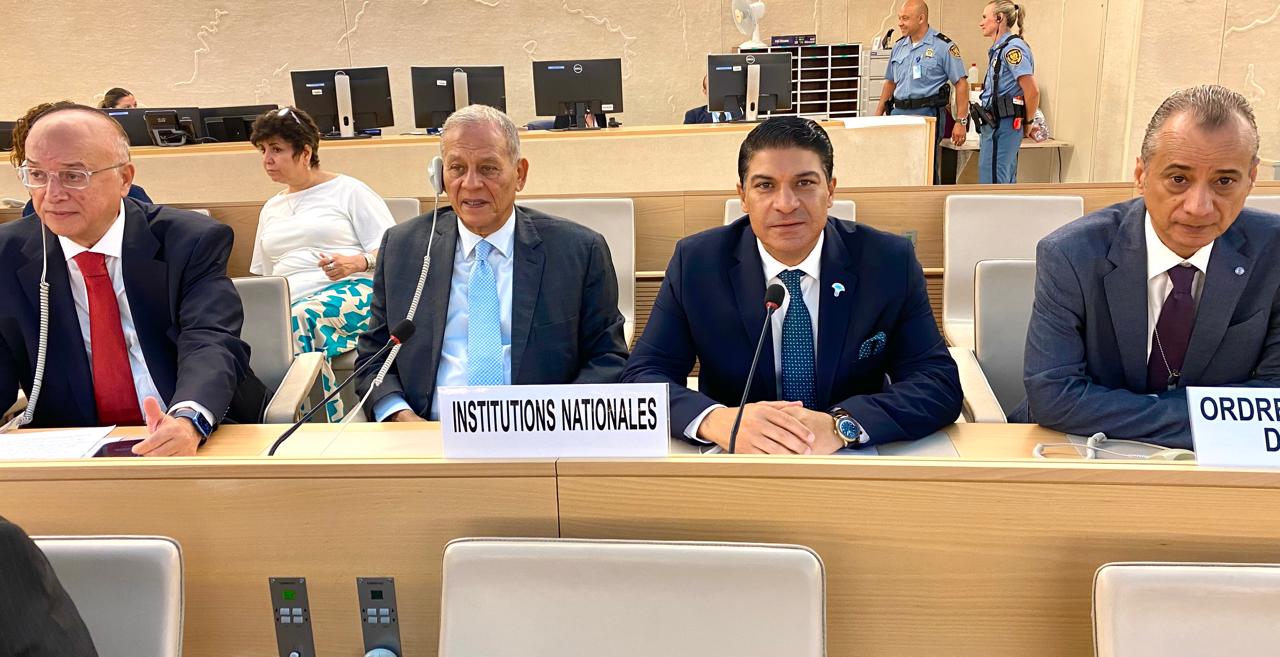NCHR welcomes UPR recommendations, reaffirms commitment to advance human rights
The National Council for Human Rights (NCHR) participated in the adoption session of Egypt’s Universal Periodic Review (UPR) outcomes during the 59th session of the United Nations Human Rights Council (HRC59) held in Geneva. In his statement before the Council members, Ambassador Mahmoud Karem, Acting- President of the NCHR, expressed the Council’s appreciation for the recommendations presented to Egypt, emphasizing their effective implementation as a genuine opportunity to reinforce the Egyptian state’s commitment to the human rights framework and to consolidate principles of transparency and accountability.
The National Council for Human Rights highlighted the ongoing need to advance legislation governing fundamental freedoms, foremost among them the freedoms of opinion, expression, and peaceful assembly, ensuring alignment with the Egyptian Constitution and relevant international standards. It further stressed the imperative of enabling a free and safe civic space for the press and media in accordance with constitutional and legal provisions, safeguarding the free flow of information and fostering an environment of diversity and pluralism.
Moreover, the Council voiced its support for the review of the application of the death penalty, advocating that its use be confined to the most serious crimes while guaranteeing adherence to fair trial standards. It also called for a thorough revision of the criminal procedures law to adopt a more comprehensive approach in addressing allegations of torture, thereby strengthening the culture of accountability and non-impunity.
The Council underscored the importance of reforming the criminal justice system, particularly through reducing the duration of pre-trial detention and activating available legal alternatives—a position previously outlined in the Council’s working paper submitted during the National Dialogue sessions. It emphasized the necessity of effective judicial oversight of detention facilities and the accountability of officials responsible for any violations occurring therein.
Further, the Council recommended extending the National Human Rights Strategy through 2030, with this second phase incorporating clear implementation mechanisms and measurable quantitative and qualitative indicators. This effort is to be conducted in full partnership with the government, parliament, judiciary, and civil society organizations, ensuring ongoing evaluation and effective institutional development.
The Council also drew attention to the imperative of amending its governing law to enhance its independence, responding to observations previously made by the international Accreditation Sub-Committee. It affirmed that an official report has been submitted detailing the efforts and measures undertaken to preserve its independence and effectiveness as a national human rights institution.
Reiterating its longstanding recommendation, the Council emphasized the importance of establishing an independent national commission to prevent discrimination, a proposal central to its vision of promoting equality, justice, and empowering marginalized groups to fully enjoy their rights on an equal footing.
Concluding his intervention, Ambassador Karem underscored the need for continued development of legislative and institutional frameworks related to human rights, in line with Egypt’s international commitments and standards. He affirmed the Council’s ongoing dedication to providing substantive recommendations and collaborating with all partners domestically and internationally to advance this critical agenda. He further highlighted that Egypt’s engagement with the Universal Periodic Review mechanism presents a genuine opportunity to embed a culture of human rights and to consolidate progress in this vital national domain.





 English
English
 Arabic
Arabic
 French
French

